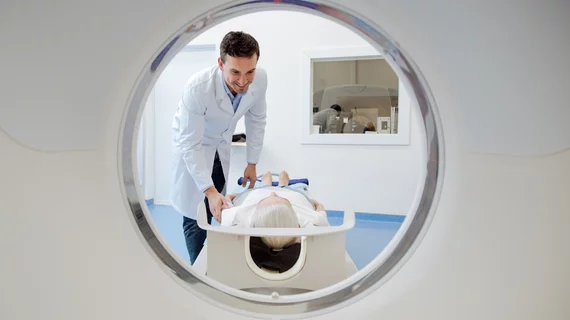New ‘metamaterial’ can make MRI scans safer and cheaper
Boston University researchers have developed a new “metamaterial” they hope can make MRI scans more efficient and cost-friendly.
The technology is made up of copper wiring and plastic and costs less than $10. When placed under the scanner next to a patient’s body part, the material can increase the signal-to-noise ratio, producing a clearer image.
Not only can the metamaterial boost signal-to-noise ratio 10-fold, but It can reduce scan times, potentially making the modality more widely available for patients at lower costs.
"Shortening MRI examinations is paramount to maximizing the capacity," Stephan Anderson, a Boston Medical Center radiologist and BU School of Medicine professor of radiology, said in a statement. “Not to mention revenue, as well as the overall patient experience of this powerful imaging technology."
Anderson and other team members describe the material as “intelligent” in that it amplifies the typically low-energy emissions from a patient’s body and shuts itself down during the short, high-energy bursts emitted by the MRI machine. Although those bursts last only milliseconds, that is enough to enhance the reflected energy from a patient and reduce their exposure to radiation.
"We can now build smart materials that can interact with radio waves intelligently, enhancing the wanted signal while letting the unwanted signal go," said Xin Zhang, a BU College of Engineering professor.
The new material, described in the journal Advanced Materials, is currently a flat, thick-layer prototype, but the researchers plan to augment it into a flexible, super thin MRI sheet, they said.

